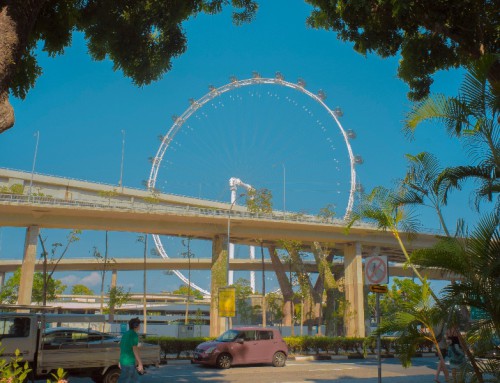As Singapore enters its worst recession since gaining independence, it is perplexing to see shopping malls packed to the brim, the stock market showing resilience and property prices and car prices inching higher. Covid-19 has decimated the global economy and yet in Singapore, other than certain sectors like F&B entertainment, tourism and travel-related industries, it does seem like the recession has not yet truly set in despite a record 41.2% plunge in Singapore’s annualised GDP numbers in the second quarter of 2020. If it were not for the Jobs Support Scheme implemented by the Singapore government, unemployment would be higher than what it would be today. I know that many may be reading this thinking that I am stating the obvious but let us truly dive deeper to truly understand how the job market works to better predict where it will be headed down the road.
Let us understand employment from an economics perspective to truly understand the job market.
In a typical job market, there are employers and employees. Just like in any market, there is demand and supply and an equilibrium has to occur at some point. An employer, let’s say a profit-driven company, is looking to hire a sales manager for $5,000 a month. The company would expect that the sales manager will generate more than $5,000 worth of profit for the company if not it does not make sense to hire that person. If the company’s monthly profit currently stands at $20,000, the company will expect the subsequent profit to be higher than $25,000. For the sake of this example, let us set this arbitrary number at $30,000. This means that the sales manager will add an additional $5,000 worth of cost to the company but bring in an additional $10,000 worth of profits for the company. It thus makes sense for the company to hire this individual.
Next up is the employee. The employee must value the salary offered to him or her more than his time to accept employment. In the case of the sales manager, the salary is $5,000 but the sales manager may value his or her time at $3,500. Only if the value of the salary offered by the company is more than $3,500 will this individual accept employment. In this case, the market sets the equilibrium at $5,000 and employment occurs.
Company profit without the sales manager: $20,000
Company profit with the sales manager: $30,000
Salary of sales manager: $5,000
Net effect of the sales manager on company profit: +$5,000
In the current scenario, the Covid-19 induced recession has caused many companies to become unprofitable. Business activity has been adversely affected and thus companies may not be making as much as they were. In some cases, especially in industries hardest hit by the pandemic, companies are generating little to no profit.
Let us once again use economics to understand this situation.
The company’s profit may have taken a significant hit. From making $30,000 a month with that additional sales manager, the profits may have dwindled to perhaps only $10,000. The company may be left with servicing its existing customers or are left to fulfil existing contractual agreements and this may become the main revenue source. The company may then look at the amount of profit that that particular sales manager on the $5,000 salary brings to the company. That amount may have dwindled down to $2,000 a month. This means that it is costing the company more money than it earns to maintain this particular sales manager. In every normal circumstance, the company would have to make the decision to end the sales managers employment with the company. However, due to the Singapore government’s Jobs Support Scheme, this particular individual has a reprieve. Let us assume that the company receives 75% salary support from the government. This would mean that the amount of salary borne by the company is a mere $1,250 a month. In this case, the company is only paying the sales manager $1,250 a month but if receiving $2,000 worth of profit by keeping the sales manager employed. It thus makes sense for the company to continue employing this employee.
Company profit during Covid-19 without the sales manager: $8,000
Company profit with the sales manager: $10,000
Salary of sales manager: $5,000
Net effect of the sales manager on company profit: -$3,000
Company profit during Covid-19 without the sales manager: $8,000
Company profit with the sales manager: $10,000
Salary of sales manager: $5,000
Government funding 75% of the salary of the sales manager: $3,750
Company pays 25% of the salary of the sales manager: $1,250
Net effect of the sales manager on company profit: +$750
This, however, has started to change. Since the end of the circuit breaker, there has been a gradual reduction in the amount of co-funding paid out by the Singapore government. The Jobs Support Scheme will be further reduced after August 2020 and most companies will only receive 10% of salary support for another seven months. In such a case, the salary paid to the sales manager by the company will be $4,500 with the government funding $500. If business activity post circuit breaker remains low and this employee only adds $2,000 a month to the company’s profits, then it would make sense for the company to stop the employment.
Company profit during Covid-19 without the sales manager: $8,000
Company profit with the sales manager: $10,000
Salary of sales manager: $5,000
Government funding 10% of the salary of the sales manager: $500
Company pays 90% of the salary of the sales manager: $4,500
Net effect of the sales manager on company profit: -$2,500
Despite the best efforts of the Singapore government, it cannot continue to save every job as this money will have to be funded by borrowing or by drawing from Singapore’s past reserves. The Singapore government faces a perplexing conundrum. To fund schemes like the Jobs Support Scheme in the hope that a medical solution is just around the corner or to bite the bullet and to let inefficient companies fail as we cannot afford to fund salaries indefinitely. I do think that the government is trying to take the middle ground by setting the co-funding portion of the government to 10% for another 7 months after August 2020. The government is also trying to use moral persuasion to get companies to hold onto their workers. The ministers have often given messages to companies encouraging them to use retrenchment as an option of last resort.
Let us be clear. Despite the mixed signals that we are constantly being bombarded from the media, we are in an extremely dire situation. This recession will become worse before we begin to see a recovery. In many cases, profits have dwindled for many companies and many employees, just like the sales manager in my example, are not relevant to the company. As the government co-funding portion of the Jobs Support Scheme reduces over time and if there is no medical solution to the current pandemic, we may see unemployment in Singapore start to rise inexorably.
Yours Sincerely,






